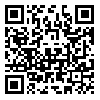BibTeX | RIS | EndNote | Medlars | ProCite | Reference Manager | RefWorks
Send citation to:
URL: http://ijpcp.iums.ac.ir/article-1-1817-en.html
Prescribing the overdose of medicatioin or polypharmacy for a patient is not principally recommended. Although , studies indicate that the usage of polypharmacy, specially from different groups of medicines, and in particular for refractory patients to treatment, if it is prescribed carefully, not only is beneficial but is necessary too. From the total patients who refer to medical doctors for any reason, 28 to 35 percent suffer from one kind of mental disorder, and those patients whose illnesses are diagnosed as more severe and complex would be referred to psychiatrists by their physicians. Perhaps for that reason, psychiatrists are forced more than any other medical doctors to prescribe polypharmacy. The medication often prescribed as polypharmacy in psychiatry are, 1) antidepressants and benzodiazepins (25%), 2) antipsychotics and antidepressants (17%), and 3) lithum and antidepressants (8%). Among psychiatric patients, the sufferer from mania need to take polypharmacy more than any other patients to be able to control the symptoms of their illness. Today, considering the peculiarity of psycho-pharmacological medications on one hand, and more complexity of medical treatment in psychiatry on the other also increasing number of the refractory patients on the treatment, it have necessitate gaining adequate and up to date by psychiatrists knowledge for prescribing polypharmacy. This article also argues about the limitations, difficulties, reasoning and the method of applying psychopharmacological drugs in mental disturbances, specially in acute mania.
Received: 2013/01/19 | Published: 2000/08/15
| Rights and permissions | |
 |
This work is licensed under a Creative Commons Attribution-NonCommercial 4.0 International License. |



